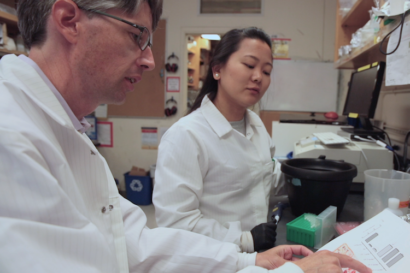Berkeley: Doctors have had great success using vaccines to boost the immune
system to fight infectious diseases like smallpox and measles, but only
recently have immune system boosters been tried against cancer. The growing success of such attempts — a booming field called
immunotherapy that was pioneered at UC Berkeley — proves that studying
the way the immune system deals with these two types of invaders, cancer
cells and pathogens, could greatly improve therapies for both.
This is the goal of UC Berkeley’s Immunotherapeutics and Vaccine Research Institute,
launched last year to explore the commonalities of cancer and
infectious disease, and use discoveries in one area to improve treatment
in the other.
Russell Vance and his colleagues Daniel Portnoy, Michael Eichberg and
IVRI faculty director David Raulet argued for this approach in a perspective piece appearing in the current issue of the journal Science Immunology.
“The two fields are dramatically intertwined … and have much to learn
from each other. More interactiveness is likely to fuel major strides
in both fields,” Raulet told the website Healthline News last week. In addition to directing IVRI, Raulet is the Esther and Wendy Schekman Chair in basic cancer biology.
In the above video,
Vance, a professor of molecular and cell biology and a Howard Hughes
Medical Institute investigator, and IVRI researcher Sarah Stanley
discuss how basic discoveries in one field trigger insights in the
other. Stanley is an assistant professor of molecular and cell biology
and of public health, and a tuberculosis researcher.
Read the Healthline News story to learn more about Raulet’s hopes for IVRI, and the 2016 Berkeley News story and video about the launch of IVRI.
